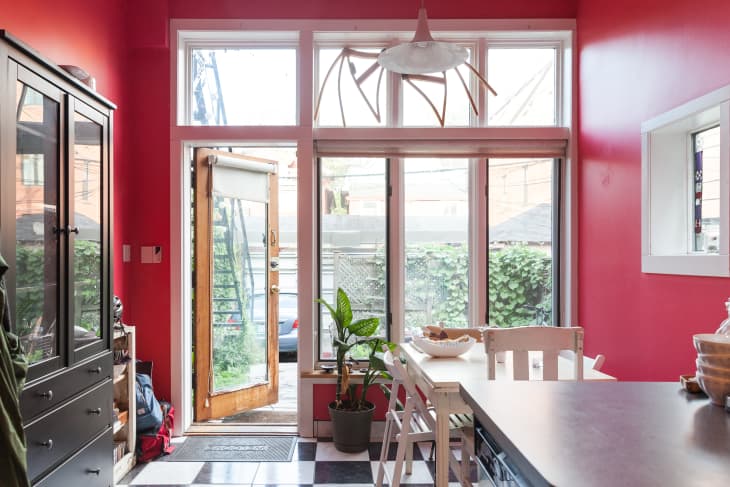The Pros and Cons of Renting (or Buying) a Garden Apartment

If you’re looking to save some money by renting or buying a garden apartment, it’s not a bad idea. Found throughout Brooklyn and other areas where brownstones are common, garden apartments are a special breed—and they’re more than just an apartment with an attached garden. There are many advantages to garden apartments, but of course, there are also drawbacks.
In the interest of helping you make an informed decision, a real estate professional has weighed in to lay out all the pros and cons of garden apartments.
Garden apartments vs. basement apartments
But first, what’s the difference between a garden apartment and a basement apartment? A lot of people—understandably—mix these two up, as they’re both partially below street level.
According to StreetEasy, there are a couple of features that make up a true basement apartment: Half of the height of the apartment must be above street level, there must be a window in each room, ceilings must be at least seven feet high, and walls must be proofed against dampness and water.
On the other hand, garden-level apartments have less restrictive criteria: They’re often located on the ground floor of a single-family townhouse or brownstone, somewhere between parlor level and basement level. Garden apartments typically have access to a backyard patio or garden—hence their name—which makes them great for families with children or pets and folks with green thumbs.
Garden apartments tend to be at ground level or just partially below grade, and are often one-bedroom units, according to StreetEasy. They are also often set back from the street and thus offer residents a small front patio. In the photo below, you can see that the garden apartment is accessible via a small wrought-iron gate, which opens to a few steps toward the sunken door.
The pros of garden apartments
So, what are the good parts of having a garden-level apartment?
1. They’re great for night owls
Garden units are perfect for people who work night shifts. “Your unit will be dark and quiet during the day so you can sleep soundly,” says Alley Ballard, a real estate broker with @properties in Chicago, Illinois. Plus, because you can quietly come and go from your bottom-floor unit, you won’t be disturbing others in the building with your irregular hours.
2. They have easy accessibility
Because garden units are typically at or slightly below street level, you’ll never have to worry about walking up and down multiple flights of stairs—it’s usually just two or three steps. “Not only is this convenient for moving in and out, but it makes Costco shopping a lot easier,” Ballard says.
3. They’re advantageous for pet owners
Street-level accessibility is also ideal when your four-legged friend has to do its business. “If you have a dog that needs to go outside several times a day, it will save you a lot of flights up and down,” Ballard says.
4. You’ll save money
The big pull for garden apartments? The savings, which Ballard says can be up to 30 percent over the same unit above ground. Likewise, rent for a garden apartment is also less expensive than above-grade units.
5. They’re energy-efficient
Garden units regulate temperature well, saving you money on your electric bill. Because heat rises, you’ll stay cool on the bottom floor. “In the heat of the summer, while your neighbors are sweating or running the A/C, you will be sitting pretty in your garden unit,” Ballard says. In the winter, the lower ceilings and carpeting (frequently seen in these units) hold onto heat.
The cons of garden apartments
1. They lack natural light
If you live in a city where daylight is in short supply during the winter, you might want to steer clear of a garden unit. “They can be dark and dim without proper lighting,” Ballard says. “Keep in mind, your plants might not fare so well, either.”
2. You might feel some dampness
If you live in an area prone to humidity, your garden apartment will attract dampness and moisture. “When you have moisture in your home, you can also be prone to pests and critters,” Ballard says. “Be sure to take proper pest control precautions.”
3. The views are not great
In a garden apartment, the views out the window can leave a lot to be desired. “When people walk by, all you can see is their feet,” says Ballard. Since people will be able to see into your unit from the street, consider investing in a good set of blinds or window treatments to protect your privacy.
4. They sell for less and appreciate in value slower
If you’re considering buying a unit—with eventual plans to sell it—keep in mind that garden units typically sell for less and appreciate (or increase in value) slower than similarly sized above-the-ground apartments. “There are fewer buyers out looking for garden units, so supply and demand drive the prices,” Ballard says.